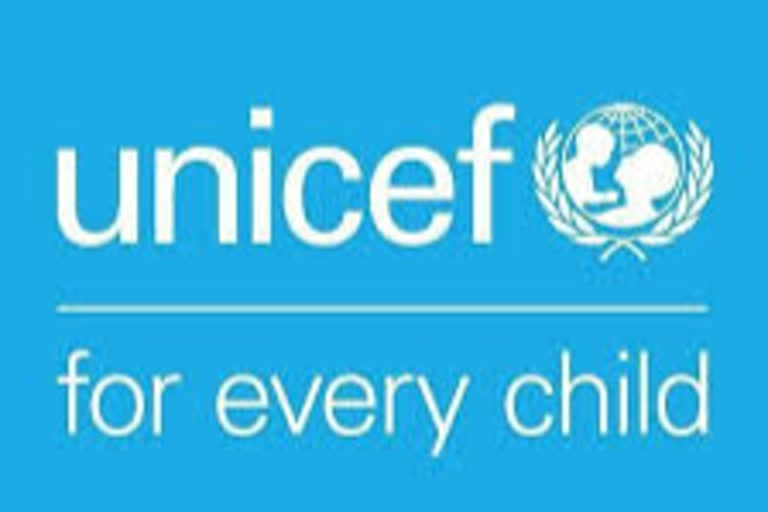New Delhi: A report prepared by UNICEF has revealed that COVID-19 pandemic in India and lockdown has impacted 247 million children enrolled in elementary and secondary education, besides 28 million children who were undergoing pre-school education in Anganwadi centres.
According to the report, at least 600 million South Asian children have been threatened by the impact of COVID-19 pandemic.
Pointing out the revelations in India's perspective on education and learning of a child, the UN report said, "In India, school closures have impacted 247 million children enrolled in elementary and secondary education. It has impacted about 28 million children who were attending pre-school education in Anganwadi centres. This is in addition to more than six million girls and boys who were already out of school prior to the COVID-19 crisis."
However, the report has highlighted the efforts done by the central and state government to continue education for children through multiple e-platforms like web portals, mobile apps, TV channels, radio and podcasts to reach children, Diksha platform, Swayam Prabha TV channels, e-Pathshala and the National Repository of Open Educational Resources.
In the wake of COVID-19 lockdown, recently, the National Council for Educational Research and Training (NCERT) has prepared an alternative academic calendar for classes 1 to 12 with suggested activities to guide learning at home.
Also read: Hike in cyber-attacks from China, over 40,000 attempts in 5 days
Importantly, UNICEF report has indicated that approximately only a quarter of households (24 per cent) in India have access to the internet and there is a large rural-urban and gender divide.
A large number of children are likely to miss out on distant learning opportunities, the report said.
On issues related to child protection, Child Protection - 'CHILDLINE', a service of the Ministry of Women and Child Development had received 460,000 calls in 21 days from March 20 to April 10, a 50 per cent increase from their regular call volumes.
"Nearly 10,000 of these were intervention cases which required CHILDLINE staff to reach the children in need of support. Of these 30 per cent were related escalation in violence, child sexual abuse, child marriage and child labour," said the report.
Dr Yasmin Ali Haque, UNICEF Representative in India said, "The pandemic has exposed the fragility of children, less by the virus itself but much more by the indirect and long-term fallout. Millions of vulnerable children are losing out on their development and learning opportunities and their right to survive. The most vulnerable families need to be protected by social protection schemes that can help them access healthcare, schooling for children, afford nutrition etc. This can only be ensured by a firm commitment from the governments and all stakeholders."
Also read: Fauci hopeful for COVID-19 vaccine by late 2020, early 2021
The secondary impact of the COVID-19 crisis has aggravated the access to affordable and nutritious food for children.
"In India, around 20 million children under five years of age are suffering from wasting, over 40 million children are chronically malnourished and more than half of Indian women aged 15-49 years are anaemic," said the UN report.
According to the newly published study by Johns Hopkins Bloomberg School of Public Health in the Lancet Global Health Journal, due to reductions in routine health service coverage levels, disruption in life-saving immunisation activities and an increase in child wasting, up to 3,00,000 children could die in India alone in the next six months.
ANI



